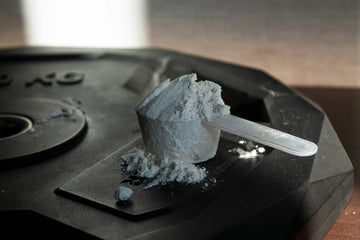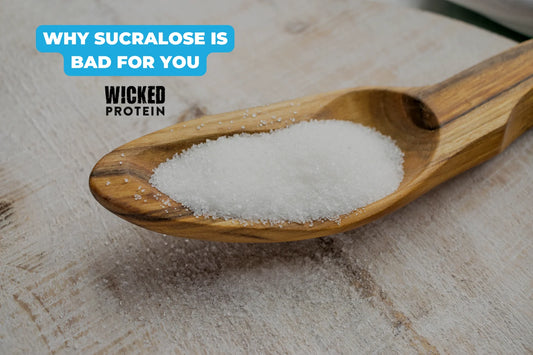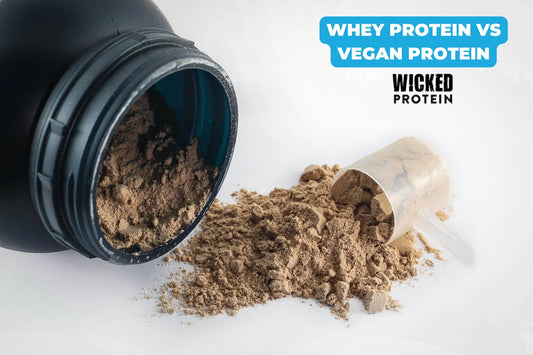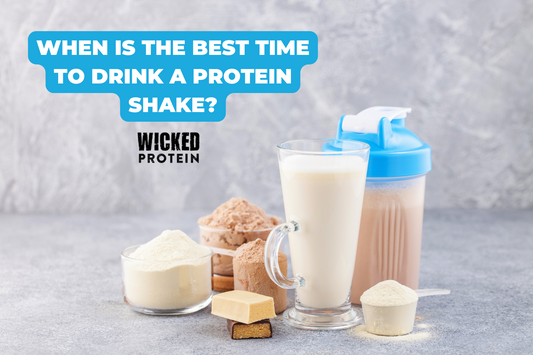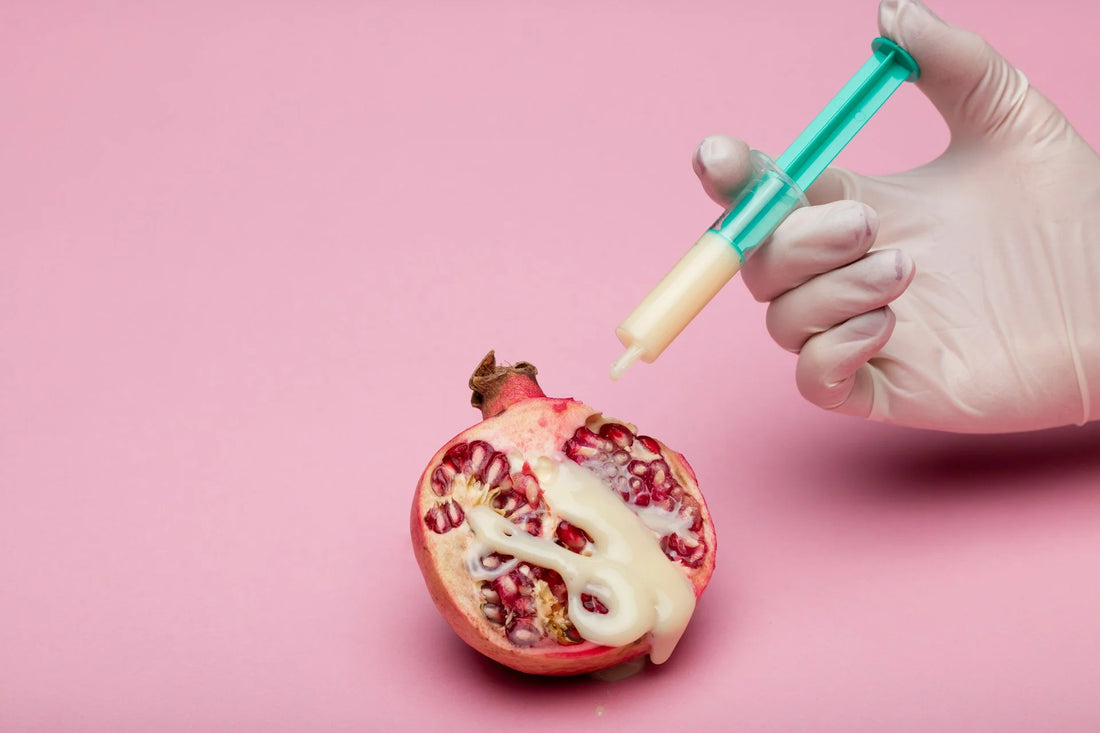
The Dangers of Artificial Flavors - What You Need To Know
Artificial food flavors are synthetic ingredients added to food to enhance the flavor and adjust the taste or extend shelf life.
Our tase buds get exactly what they want, a great taste and an enjoyable meal, but what's the cost of artificial flavors on health?
In this article we've covered the main dangers and health risks of consuming artificial flavors or colors.
|
Aspect |
Natural Flavors |
Artificial Flavors |
|
Health |
Derived from edible sources, such as fruit, vegetables, herbs, and spices. They are considered safe and healthy. |
Chemically synthesized substances designed to mimic natural flavors. Sometimes contain compounds with potential health risks. |
|
Taste |
A complex. authentic, and a subtle taste that resembles the original source and how healthy it is. |
An intense taste designed to be more consistent and potent. Might lack depth and complexity found in natural flavors |
|
Risks |
Minimal or non-existent. Generally safe to use. |
Allergic reactions, health issues and diseases |
What Are Artificial Food Flavors?
Artificial food flavors are synthetic ingredients added to food products to enhance their taste, texture, appearance, or shelf life. These flavors are created in a laboratory using both natural and synthetic compounds. The goal of artificial flavors is to mimic a certain taste or+ smell of natural ingredients, making processed foods more appealing to consumers.
When we consume food, our taste receptors detect specific compounds and send signals to our brain, resulting in the perception of taste. Artificial flavors are designed to activate these taste receptors in a similar way to natural flavors.
How Are Artificial Flavors Made?
Artificial flavors are made by combining various chemicals to create a specific taste or smell. These chemicals can be derived from natural sources or synthesized in a laboratory. The flavor compounds are then mixed with other ingredients, such as solvents, emulsifiers, and preservatives, to create the final artificial flavoring. The process of creating artificial flavors is complex and requires the expertise of flavorists who specialize in flavor chemistry.
How Do They Make Artificial Flavors Taste Real?
Scientists make artificial flavors taste real by carefully mixing and calculating chemical proportions to make sure get a more realistic taste. This is done by trial and error until the artificial taste closely mimics the real, natural taste.
As you can guess, the taste result is similar to the real deal, but the ingredients are not. Heavy chemical modification is required to create an artificial taste that is similar to the natural taste.
Where Artificial Raspberry, Strawberry, and Vanilla Flavor Comes From
The artificial taste for strawberry, raspberry, and vanilla comes from dried perineal glands of the beaver. These glands are located above the intestinal, urinary, and reproductive parts of the beaver, and are also called "beaver anal glands". They also contain castroeum.
Castroeum is also used in perfumes for a musky scent and to keep fragrances last longer. It is not a vanilla substitute, but a flavor enhancer that is used as a flavoring ingredient in many artificial food flavorings.
Why Are Artificial Flavors Used?
Artificial flavors are commonly used in food products for several reasons. They can enhance the taste and aroma of processed foods, making them more appealing to consumers. In addition to taste, artificial flavors are less expensive to produce and have a shorter and easier processing.
Taste
Artificial flavors are used to enhance the taste of food products. They can provide a stronger or more intense flavor compared to natural flavors, making food more flavorful and enjoyable. However, that is only a perception of taste, and isn't correlated with the health impact of the food.
The taste receptors on our taste buds detect specific compounds in food and send signals to our brain, allowing us to taste sweet, salty, sour, bitter, and umami flavors. Artificial flavors are designed to target these receptors and get them to send the same signals to our brain as with natural flavors.
Cost-Effectiveness
In addition to enhancing taste, artificial flavors are also used for their cost-effectiveness. Natural flavors can be expensive to produce and require heavy processing, especially if they require large quantities of specific ingredients. Artificial flavors, on the other hand, are much easier, quicker, and less expensive to produce.
But, there's a cost with everything. While the food processors save money and time by producing artificial flavors, they compromise the quality of the product and risk certain health issues and diseases to their consumers.
Are Artificial Flavors Bad For You?
Some sources mention that artificial food flavors are generally safe for consumption. However, various side effects have been linked to artificial flavors, such as headaches, fatigue, chest pain, dizziness, and allergic reaction.
Here are some of the possible health issues that are caused by artificial flavors:
Cancer
There is some concern that certain artificial flavors may be linked to an increased risk of cancer. One study by the International Journal of Occupational and Environmental Health found that certain artificial flavoring compounds, such as diacetyl and 2,3-pentanedione, can be cancerogenic and increase the risk of developing lung cancer
However, more research on the ingredients of artificial flavoring is needed to fully support the claim that artificial flavoring causes cancer.
Gut Health
The impact of artificial flavors on gut health is not well understood. However, some studies have suggested that artificial sweeteners, which are commonly used in artificial flavors, may alter gut bacteria diversity and potentially lead to digestive issues.
Addiction
Artificial sweeteners are designed to reward our brain with pleasure and release dopamine by pleasing our taste buds . While food addiction is a real thing, even without artificial flavors, they only increase the risk of developing addiction to a certain food or taste
Some studies have suggested that artificial sweeteners may affect hunger and food cravings, potentially leading to increased food intake and weight gain. However, more research is needed to fully understand the potential addictive properties of artificial flavors.
Brain Damage
There is some concern that certain artificial flavors, particularly those that contain artificial colors, may have an impact on brain health, affecting memory and causing changes to the neurotransmitters in the brain.
Some studies have suggested a possible link between artificial colors and attention deficit hyperactivity disorder (ADHD) in children.
How To Avoid Artificial Food Flavors and Colors
To avoid artificial flavors and colors in your diet, consider the following tips:
- Read food labels carefully and look for products that do not contain artificial flavors or colors.
- Skip ingredients with numbers in their names, as these are often artificial additives.
- Learn the common names of artificial flavors and colors to identify them on ingredient lists.
- Choose whole, minimally-processed foods that are less likely to contain artificial additives.
Skip ingredients with numbers in the name
Most artificial colors are named simply with the name of the color followed by a number. If you're looking to avoid and artificial food flavoring or coloring, avoid products with these printed on the back:
- Red no. 3
- Yellow no. 5
- Green no. 3
- Blue no. 2
Avoid Tartrazine
Tartrazine is a commonly used yellow food coloring that might cause certain allergic reactions in some people. It is usually found in the area where product ingredients are pointed out.
While some consider it safe, it is also a possible food carcinogen, so it would be best to avoid it.
Learn common names of artificial flavors
To avoid artificial flavors, you should learn the common ingredient names of artificial flavors used in processed foods.. Some common examples include vanillin (used in place of natural vanilla flavor), ethyl maltol (used to enhance sweetness), and diacetyl (used to create a buttery flavor). By knowing these, you're only one look away from finding out if your product contains artificial flavors.
Eat whole, minimally-processed foods
One of the best ways to avoid artificial flavors and colors is to focus on eating whole, minimally-processed foods. These foods are less likely to contain artificial additives and provide a range of important nutrients. When shopping, look for organic options, as these are made without the use of synthetic solvents, carriers, or artificial preservatives.
Common Artificial Foods
Artificial flavors are commonly found in a wide range of food and beverage products. Some common examples include:
- Soft drinks and energy drinks: Many carbonated beverages and energy drinks contain artificial flavors to enhance their taste.
- Snack foods: Chips, cookies, crackers, and other snack foods often contain artificial flavors to make them more appealing.
- Processed meats: Deli meats, hot dogs, and other processed meats may contain artificial flavors to enhance their flavor.
- Dairy products: Ice cream, yogurt, and other dairy products may contain artificial flavors to create different flavor profiles.
- Baked goods: Cakes, cookies, and other baked goods may contain artificial flavors to enhance their taste.
- Sauces and dressings: Many sauces and dressings, such as ketchup, mayonnaise, and salad dressings, contain artificial flavors to improve their flavor.
It's important to read food labels carefully to determine if a product contains artificial flavors. Choosing whole, unprocessed options and cooking at home using fresh ingredients can help you avoid artificial flavors and enjoy more natural, flavorful foods.
Alternatives to Artificial Flavors
For those who prefer to avoid artificial flavors, there are alternatives available. Natural flavors, which are derived from plant or animal sources, give a lesser, but healthier taste experience without the use of synthetic chemicals. Plus, many food, beverage, or supplement brands use natural ingredients in their products.
For example, at WICKED, we don't use any artificial flavoring or coloring for our products. This way, we make sure you get a natural taste and the natural health benefits of our protein products.
Natural Flavors vs Artificial Flavors
The main difference between natural and artificial flavors is in their origin. Natural flavors are derived from plant or animal sources and are minimally processed to extract the flavor compounds. On the other hand, artificial flavors are created in a laboratory using a combination of natural and synthetic compounds.
From a taste perspective, natural and artificial flavors have a similar taste. Artificial flavors may have a stronger impact on the taste buds, but natural flavors have an authentic taste that can't be faked.
From the health perspective, natural flavors are safer to consume and don't risk many health issues that artificial flavors pose.
Clean & Certified Food Brands
Choosing clean and certified food brands can be a good way to avoid artificial flavors. These brands focus on using high-quality ingredients and minimizing the use of artificial additives and are required to meet strict standards for ingredient sourcing and processing.
At WICKED, not only do we do our own lab testing to ensure our ingredients, packaging, and finished products are safe, but we partner with the Clean Label Project, a nonprofit organization that focuses on health and transparency in consumer product labeling.
Frequently Asked Questions
What Can I Do to Avoid Artificial Flavors?
To avoid artificial flavors, you can read food labels carefully, choose whole foods and organic options, and cook at home using fresh ingredients. This will help you minimize your intake of artificial additives and enjoy naturally flavorful foods.
What are the Long Term Effects of Consuming Artificial Flavors?
The long-term effects of consuming artificial flavors are still not fully understood and cannot be directly linked only to artificial flavors. Some studies have suggested potential links to chronic diseases and an increased risk of cancer.
Is Artificial Flavor Vegan?
Artificial flavors can be vegan, depending on their specific ingredients. While some artificial flavors may be derived from animal sources, others are created using only plant-based compounds. It really depends on the type of flavoring and the food processor responsible for creating it.
Conclusion
There are various ongoing debates about artificial food flavoring and the possible health risks that are associated with them. For optimal health benefits, settle for natural flavors from clean, certified food brands that promote a healthier lifestyle.
Trying an "all or nothing" approach is simply impossible with the amount of processed food in today's world. It's best to slowly adjust your diet and fill it with more natural ingredients and foods.


